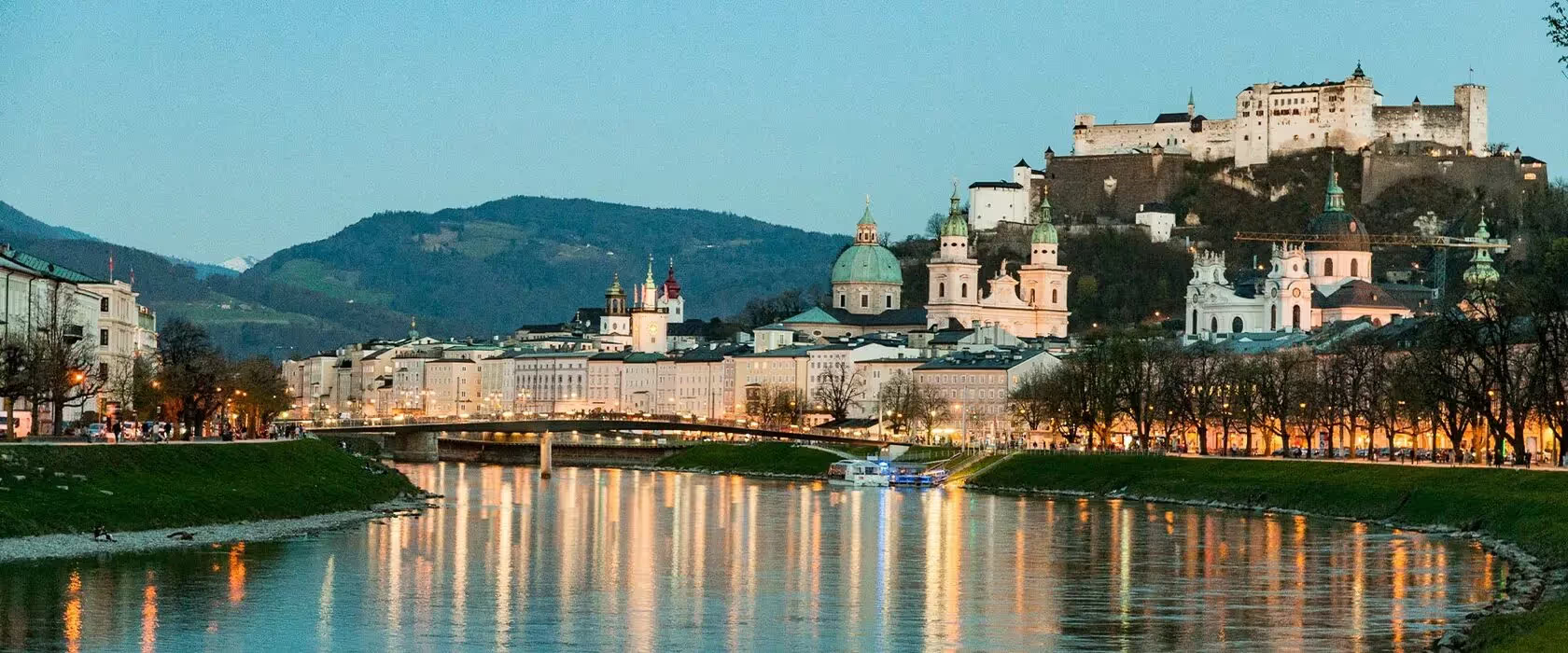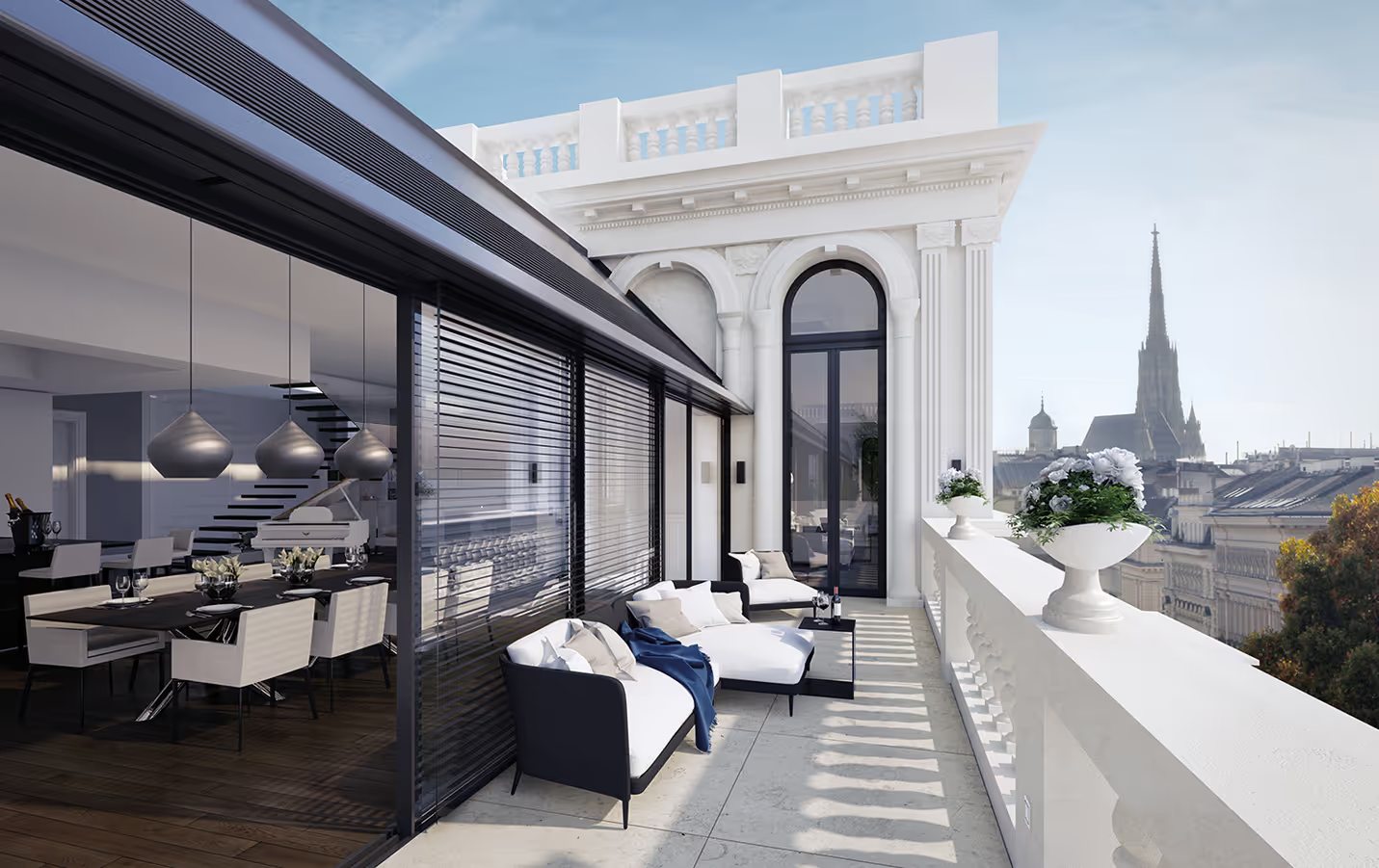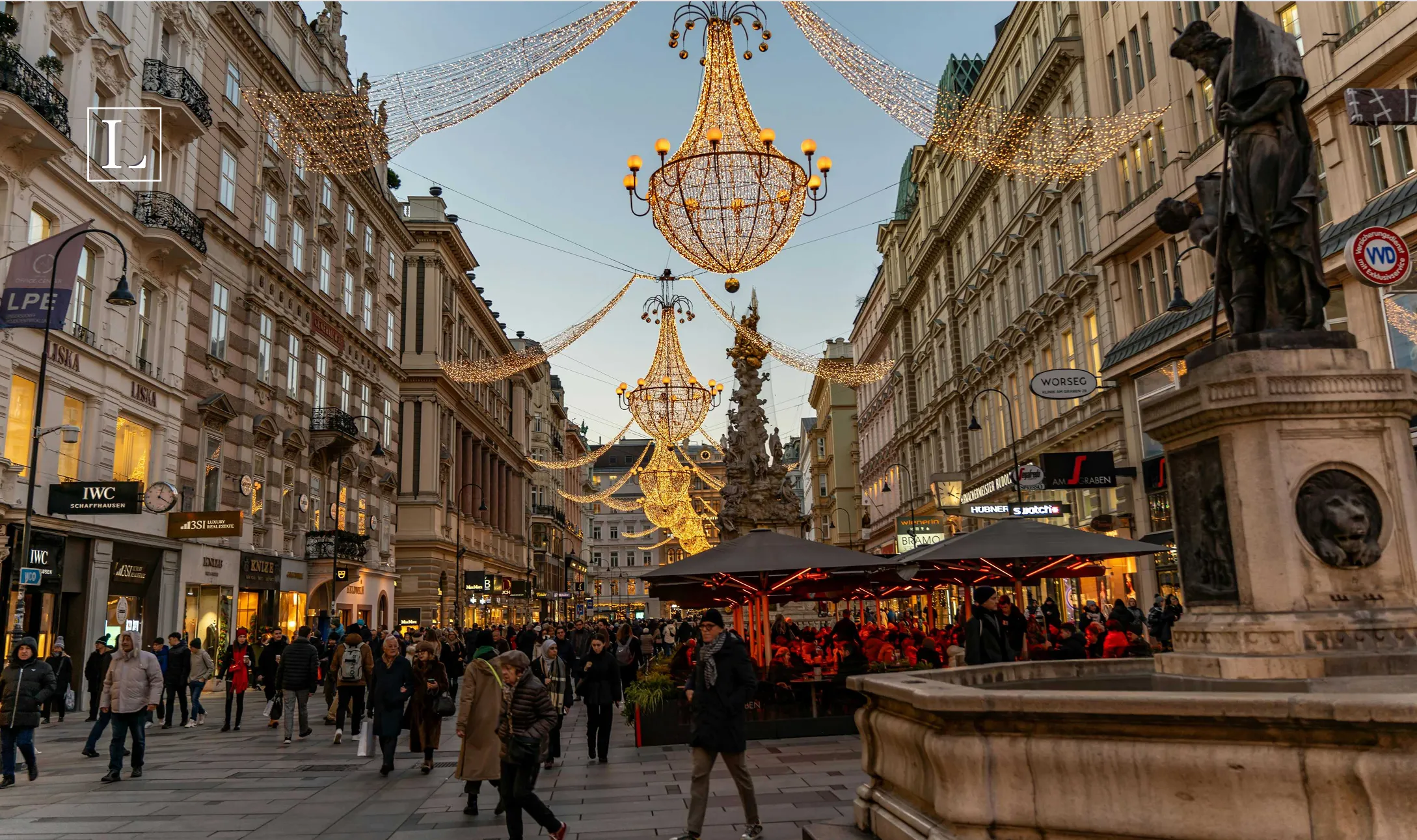How to Get a Financially Independent Person's Visa in Austria
What is an independent person visa in Austria, how to get a document for yourself and family - who is granted a quota, what documents are needed to obtain.

Austria is one of the most stable and prosperous European countries. In 2019, it's been in 14th place by its GDP level and in 10th place by happiness level. An applicant can get an Austrian residence permit by simply confirming their status as a financially independent person. However, there's one considerable issue: only 450 quotas are available each year. We're going to try and figure out how to get into this magical number.
The Austrian residence permit is mainly chosen by people, who have accumulated a substantial budget and want to live in Austria – the country with high living and security standards, as well as with high economic indexes and flawless ecology. With this document, entire families can receive high-quality medical services and children can learn in top European schools, colleges, and universities. Besides, an Austrian residence permit allows traveling through Schengen countries without visas.
Who Can Get an Austrian Residence Permit?
First of all, there is no special investor program in Austria, like there is in Greece, Portugal, or Spain. This, however, doesn't mean that investors aren't getting a residence permit upon buying real estate or investing in state bonds.
Instead of this, the temporary and long-term residence law allows financially independent persons to obtain a residence permit. This is how wealthy people from countries outside the European Union can get an opportunity to live in Austria without the right to work. But it's necessary that the funds are earned outside of Austria.

The law also allows for other ways of getting a residence permit. For instance, one could get it via starting a company, getting hired, studying in a university, or family reunion.
The applicant can apply for a residence permit with their spouse and children under 18 years of age. Brothers, sisters, parents, and children over 18 must apply independently.
The quotas are provided separately for each family member. A family of three receives three separate quotas. That is, if the documents are submitted by a family of five, they are making a claim for five quotas.
Earnings and Other Conditions to Meet
The financial independence of an applicant and their family members is confirmed through the earnings certificate. This can be a regular bank statement of any country at the stage of the first application.
The incomes that must be verified on a monthly basis after the tax deduction are as follows:
- €1,900 for one person
- €2,900 for a family couple
- €300 for each child
Additional costs for rent, medical insurance, car maintenance, and such must be added to the sums mentioned above.
The applicant must also confirm their knowledge of the German language at the A1 level, rent or buy property for residence, and get an insurance policy. The simplest and most popular way of confirming German language knowledge is to provide a Goethe Institute certificate that proves the level of proficiency in German.
When applying for the residence permit for the first time, an apostilled diploma of higher education will work just fine. Then, it must be confirmed in the National Information Center for Academic Recognition and Mobility.
.avif)
Speaking of the accompanying costs mentioned above, renting a three-bedroom apartment with a surface area of 90 m2 costs about €1,700 a month, while medical insurance for the entire family costs €1,600.
As for real estate, the most crucial factor is that it must be located in the federal land of Austria that corresponds to the applicant's quota. Children of different sexes must have separate rooms in either an apartment or a house. These are the only universal real estate criteria. Every federal land has its own measures.
When receiving the residence permit, the applicant also has to sign a document that confirms their intent on improving their knowledge of the German language. In other words, you will have to learn the language either way. Two years later, when submitting documents for residence permit extension, this certificate must be presented, as well.
A Deeper Look into Quotas
The most important thing in the process – considering all of the other requirements are met – is to manage and get the annual quotas. Every year, a particular number of applicants are capable of getting a residence permit. The number of quotas varies from 300 to 450.
It is possible, in theory, that parents will get the quotas, while their child will not. The thing is that quotas are provided separately for each family member. In this case, one can refuse to participate in the program and submit their documents the following year.
Quotas are allocated on the first business day of January. Every Austrian region receives its quotas – their number is announced in mid-December. Usually, Vienna gets the most quotas, but the thing is that the capital gets the most interest, too. When applying for the residence permit, the applicant must specify the region where they are going to live in the future. There can be situations, when the competition in a less demanded federal land is lower, which means the chances are higher.
.avif)
Today, the situation with quotas is quite intense. Just several years ago, Vorarlberg – one of the federal Austrian lands – wasn't highly-demanded among applicants, so people had a chance of getting a quota for it even a couple of months after quota allocation. But today, all quotas find their owners within the first business day of the year.
Alright now, how do you increase your chances at getting a quota? As paradoxically as it may sound, the quotas are allocated on a first-come-first-served basis on the first business day of January (as was already mentioned above). It's necessary to register for document submission several months in advance – it's impossible to just arrive at the consulate with your paper package and get a quota.
Those, who have literally managed to submit their documents first, have the highest chances of getting a quota because their application is going to be reviewed first. In other words, the earlier the applicant submit your documents to the consulate or magistrate, the higher their chances of getting a quota. The package of documents of a financially independent person must be submitted to Austrian consulates or magistrate at the place of the leased housing.
Another important condition of document submission is to have a foundation for a visa-free admission into Austria. This may be a residence permit of another Schengen country or a passport that allows a visa-free entry in Austria, for example, that of a Caribbean country. It's important to note that the Schengen visa is not suitable here. Even if you have it, you will have to submit your documentation package to the Austrian consulate in your country.
It's also important to properly execute the documents. General requirements for them don't change, but new details and nuances arise all the time, which requires specialized assistance. Even if you commit just one error, you will lose an entire year and money.
Applying for the Austrian Residence Permit
To start the application process, it's necessary to take care of the documents first. The main document suite includes:
- International passport
- Police clearance certificate
- Certificate of birth
- Certificate of earnings in the form of a bank statement
- Certificate of passing a German exam or diploma of higher education
- Documents that prove family ties with your family members
The document suite must be apostilled and translated to German by a licensed translator.
Then, it's necessary to rent residential property in the land that you're planning to live in. In order to prove the deal's commencement, it's essential to make a rental agreement for the period of 15 months. Unfortunately, local residents aren't very willing to make rental agreements with foreigners without a residence permit. Such a tenant raises doubt about the transaction's safety because if they won't receive the Austrian residence permit, the contract will be terminated.
After that, you will need to get local medical insurance. As was mentioned above, a policy for an entire family costs about €1,600 a month.
You will find out about quota allocation within a period of 3 to 6 months. The results are sent by mail to your official representative from the magistrate. If your application is approved, you must get a D visa for entry to Austria in the consulate in your country. D visa allows you to stay in the country for 91 days for 6 months.
Then, you go to Austria and submit the needed documents for the residence permit to the migration service of Austria, having preliminarily paid the fees. Four to six weeks later you are going to receive your residence permit card.
.avif)
A Few More Things about the Residence Permit in Conclusion
The residence permit is issued for one year and can then be extended for another year. Two years later, if the permit owner has fulfilled the term conditions of living in Austria – has stayed on the country's territory for at least 183 days in a year or has improved their German proficiency to the A2 level, their residence permit can be extended for three more years at once.
After five years of continuous residence in Austria, one can make a claim for permanent residence. Besides standard document requirements and continuous residence, it is necessary to have at least a B2 proficiency level in German.
Thus, if you want to stay in Austria, you must stay in the country for at least 183 days in a year. By fulfilling this condition, you automatically become a tax resident of Austria, so you must pay taxes, declare your earnings, and have medical insurance. And, of course, every owner of the Austrian residence permit must abide by the country's laws.
Share your contact details, and we will happily assist you in finding your dream property







-p-2000.webp)
.avif)
%20(2).avif)





